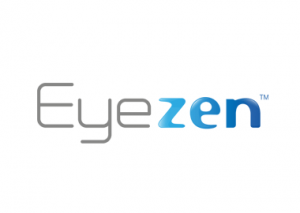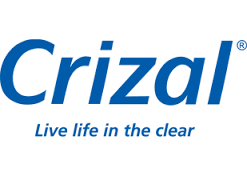Glaucoma, often described as the "silent thief of sight," encompasses a group of eye conditions that can lead to irreversible vision loss and even blindness if left untreated. This progressive eye disease tends to damage the optic nerve, gradually impairing peripheral vision and, if undetected, can lead to a significant reduction in visual acuity.
The stealthy nature of glaucoma underscores the necessity of comprehensive yearly eye examinations — vital for early detection and effective management of this potentially sight-threatening condition.
What is Glaucoma?
Glaucoma, a complex eye disease that affects millions worldwide, leads to damage of the optic nerve and subsequent vision loss. Glaucoma is often associated with increased intraocular pressure, gradually impairing the optic nerve's functionality. The condition can be broadly categorized into open-angle and angle-closed glaucoma, each presenting unique characteristics and potential implications for vision health. While open-angle glaucoma is the most prevalent form, angle-closed glaucoma demands immediate medical attention due to its sudden onset and potential for severe vision impairment.
Symptoms and Risk Factors of Glaucoma
Understanding the early warning signs and risk factors associated with glaucoma is crucial for timely detection and management. While some individuals with open-angle glaucoma may not experience noticeable symptoms initially, the gradual vision changes can lead to subtle manifestations, including:
- eye pain or pressure
- headaches
- rainbow-colored halos around lights
- blurred vision
- nausea
Angle-closed glaucoma, on the other hand, tends to manifest more severe and sudden symptoms, including intense eye pain, nausea, and vomiting.
The causes of glaucoma often stem from increased intraocular pressure, leading to the inadequate drainage of fluid in the eye. This pressure buildup can gradually damage the optic nerve, resulting in glaucoma and potential vision loss.
There are various risk factors for glaucoma, including:
- age
- ethnic background
- family history of glaucoma
- specific eye conditions
medical history
Detecting Glaucoma: The Importance of Annual Eye Examinations
The significance of annual eye examinations cannot be overstated, particularly for glaucoma. Regular comprehensive eye exams enable early detection of glaucoma, facilitating timely intervention and management strategies to preserve optimal vision health. Detecting glaucoma in its initial stages is paramount to implementing effective treatment plans, which can help slow its progression and minimize the risk of permanent vision impairment. Eye care professionals utilize a range of diagnostic tools and tests, including tonometry, ophthalmoscopy, and visual field testing, to assess the health of the optic nerve, measure intraocular pressure, and identify any potential signs of glaucoma.
Management Strategies for Glaucoma
Effective management of glaucoma entails a multifaceted approach aimed at controlling intraocular pressure and preserving optic nerve function. Treatment options may include prescription eye drops, oral medications, laser therapy, or surgical intervention, depending on the severity and progression of the disease. Regular monitoring and follow-up appointments are crucial in evaluating the efficacy of the chosen treatment plan and ensuring that the condition remains under control. Additionally, lifestyle modifications, such as maintaining a healthy diet, exercising regularly, and avoiding smoking, can contribute to the overall management of glaucoma and promote long-term vision health.
Safeguarding Your Vision with Annual Eye Examinations
Annual eye examinations are a proactive approach to safeguarding your vision health, especially in glaucoma. These comprehensive assessments not only aid in the early detection of glaucoma but also enable optometrists to monitor any changes in your eye health over time.
By evaluating crucial factors such as intraocular pressure, optic nerve health, and visual field, eye care professionals can identify any potential signs of glaucoma and implement suitable management strategies tailored to your unique vision needs. Early detection and timely intervention are pivotal in preserving your vision and minimizing the risk of irreversible damage caused by glaucoma.
Partnering with Premier Eye Center for Comprehensive Vision Care
At Premier Eye Center, we prioritize the comprehensive well-being of your vision. Our experienced team of eye care professionals is dedicated to providing thorough annual eye examinations, offering personalized care and guidance to ensure the early detection and effective management of glaucoma and other vision-related concerns.
Through a patient-centered approach, we strive to empower you with the knowledge and resources needed to make informed decisions about your vision health. Schedule an appointment today to take proactive steps toward preserving your vision, health, and well-being. With our commitment to excellence and personalized care, we are here to support you on your journey to optimal vision, health, and clarity.





